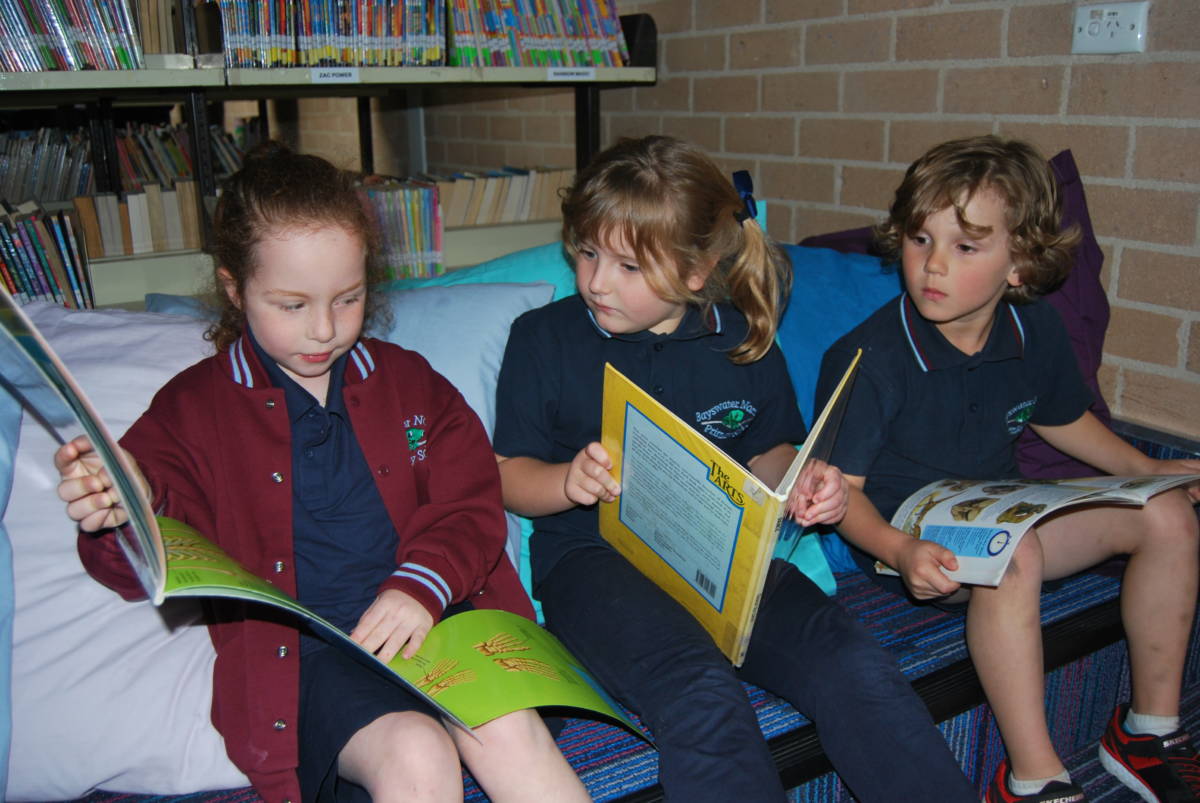Curriculum
Teaching & Learning
At Bayswater North PS we implement the Victorian Curriculum, and in 2025 will be shifting to the updated Vic Curric 2.0.
Our School uses the ‘Gradual Release of Responsibility’ instruction framework to plan and implement lessons in all subject and curriculum areas.
The gradual release of responsibility instructional framework involves teachers gradually taking less responsibility for learning and students gradually assuming increased responsibility. It is through this process that students become competent and independent learners. This is often referred to as the ‘I do – We do – You do’ model. (Vic Department of Education 2022). It helps children become capable thinkers and learners, and is an effective approach for improving student outcomes.
It is important to note that gradual release of responsibility is not linear. Teachers move between modelling, guided and independent practice throughout lessons. Teachers make decisions based on student understanding and readiness. Students may move ‘forwards’ and ‘backwards’ in this process. (NSW Department of Education 2024).
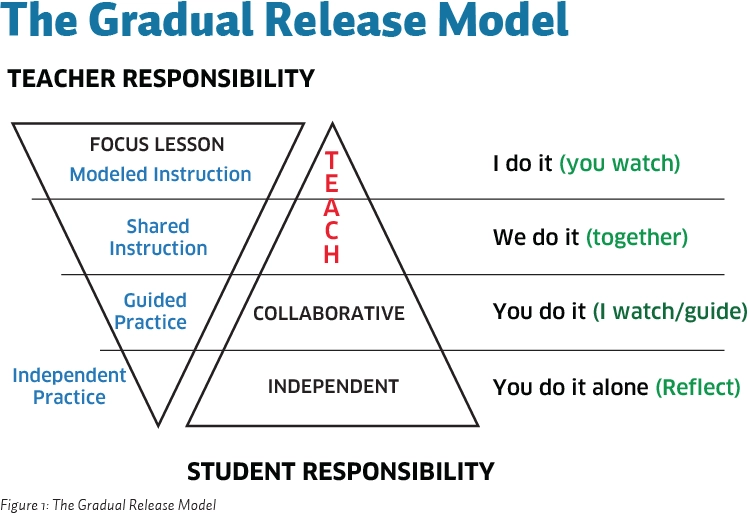
Literacy
At Bayswater North, English is recognised as being an integral part of daily life. We aim to instil a love of reading and writing in our students, and to link these experiences to real life through our integrated studies program.
In all classes at BNPS, Students are exposed to a variety of texts during literacy sessions which develop children’s literacy skills such as comprehension, reading strategies and reading fluency. In addition, library sessions and ‘take home’ reading materials support the development of these skills as well as fostering confidence and enjoyment of reading.
In the early years of primary school there is a more concentrated focus on developing phonics skills in all students to build their ability to decode text. As their skills progress, the focus shifts more to building an in-depth understanding of the ideas, themes and concepts presented in their reading.
All students from Years 1-6 regularly use the Wordshark program to support their knowledge and use of phonics for reading and spelling. For further information regarding the Wordshark Online program, please visit their website:
Numeracy
At Bayswater North Primary our mathematics curriculum follows the Victorian Curriculum.
Our school aims to ensure that students:
- are confident, creative users and communicators of mathematics, able to investigate, represent and interpret situations in their personal and work lives and as active citizens
- develop an increasingly sophisticated understanding of mathematical concepts and fluency with processes, and are able to pose and solve problems and reason in Number and Algebra, Measurement and Geometry, and Statistics and Probability
- recognise connections between the areas of mathematics and other disciplines and appreciate mathematics as an accessible and enjoyable discipline to study.
The Victorian Curriculum Mathematics Learning Area in primary schools incorporates the following:
- Number and Algebra: counting, number patterns, place value, addition, subtraction, multiplication, division, fractions, decimals, money, mental strategies, calculations
- Measurement and Geometry: money, length, mass, time, temperature, area, volume, capacity, angles, shape, location
- Statistics and probability collecting, reading and interpreting data and graphs and deciding on the chances of events occurring.
At Bayswater North Primary all grade levels have a minimum of five one hour sessions per week allocated to mathematics. Typically, mathematical sessions begin with a whole class focus. The children may then be part of small group teacher directed activities, independent activities or rotational activities. Groups are structured according to the teaching focus of the session and the children’s individual learning needs.
Children are encouraged to verbalise their thinking. Sharing their learning and strategies during and at the end of a session is an excellent way for children to learn from each other and clarify their understandings.
Children work at a level that enables them to build on prior knowledge, challenge their thinking and make new connections. At all levels children are presented ‘real life’ mathematical problems enabling them to apply their mathematical skills and develop their problem solving strategies.
Mathletics
The children at Bayswater North have been given a userid and password enabling them to use the ‘Mathletics’ Program. This program can be accessed by the children both at school and home. Children are able to practise, refine and challenge their mathematical skills and understandings at levels appropriate to their capabilities.
For further information use the link below
http://victoriancurriculum.vcaa.vic.edu.au/mathematics/introduction/rationale-and-aims
Indonesian
Selamat Datang!
At Bayswater North Primary School, Bahasa Indonesia is taught weekly to the whole school, with preps to Grade 2 students having 40 minute sessions and Grade 3 to Grade 6 students having 60 minute sessions.
Our Indonesian program focuses on developing language skills and building cultural awareness. Students are encouraged to be curious and have fun while they learn, to build their confidence and encourage engagement.
Students learn in a wide variety of ways including singing, role-plays, art, dance, writing, reading, watching video clips and online learning. Language learning covers topics such as Greetings, Colours, Numbers, Pets, Family, School, the Body, Clothes and Shopping. By learning Indonesian, students learn about, and value, different ways of life, traditions, geography, arts, flora and fauna. Students also learn more about themselves.
Indonesian is offered by a number of nearby secondary schools and we have close ties with the Indonesian Department at Heathmont College. Every year, Grade 5 students participate with 4 other primary schools and attend Asian Day at Heathmont College. We work together to manage transitions for our Year 6 students continuing Indonesian.
Apart from being lots of fun, learning another language has many benefits!
For example:
- Learning a language is great training for your brain
- Language skills can open new doors for travel, work and understanding.
- You can build connections with people from other countries
- Language learning supports literacy
- You can learn more about your own language and culture
- There are also plenty of good reasons to study Indonesian:
- Being ‘Indonesia-savvy’ can open doors to a wide range of employment opportunities
- Indonesian is very accessible – it uses the same alphabet as English and there are no tones
- Indonesian is a form of Malay so you can communicate with around 250 million people in Indonesia plus people in Malaysia, Singapore and Brunei.
If students have access to the internet at home, they might like to explore or revise their vocabulary at the Indonesian section of Languages Online at:
https://www.education.vic.gov.au/languagesonline/indonesian/indonesian.htm
Terima kasih (Thank- you),
(Bu) Mary-Ellen Dowling
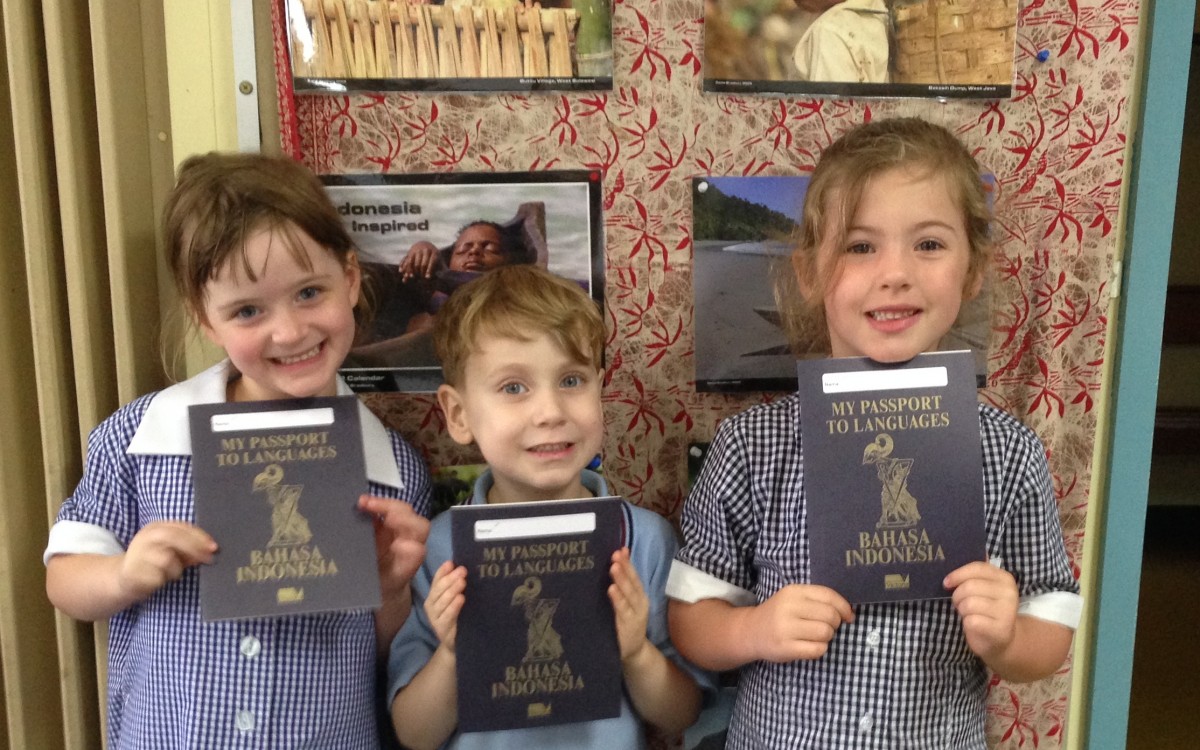
Science
Science is a key area of study at Bayswater North Primary School. In the Science Curriculum Children, based upon the Victorian Curriculum there are 3 strands that are covered:
Science Understanding
Biological sciences.
In this area students learn that living things are interdependent and interact with each other and their environment; and the form and features of living things are related to the functions that their body systems perform.
Chemical sciences
Students classify substances based on their properties, such as solids, liquids and gases, or their composition, such as elements, compounds and mixtures.
Earth and space sciences
Students understand that the Earth is part of a solar system that is part of a larger universe; They explore how changes on Earth, such as day and night and the seasons relate to Earth’s rotation and its orbit around the sun. They explore the ways in which humans use resources from the Earth and appreciate the influence of human activity on the surface of the Earth and the atmosphere.
Physical sciences
Students study the forces that affect the behaviour of objects; and that energy can be transferred and transformed from one form to another.
Science as a human endeavour
The nature and development of science
Use and influence of Science
Science Inquiry and Skills
Science inquiry involves identifying and posing questions; planning, conducting and reflecting on investigations; processing, analysing and interpreting evidence; and communicating findings
To support our science program our school’s resources include:
- Our own Frog Bog, designed as a breeding site so students can investigate living things, including animals, plants, and micro-organisms, and their interdependence and interactions within ecosystems.
- Home Grown garden where children learn they life cycle of plants how vegetable are grown and the seasons they follow .The products from our gardens are used by the children to promote healthy eating habits
- A worm farm as part of our recycling program
- Composting program to provide fertilizer for our garden beds.
- A Water Wise program to promote care of our waterways
- A wide range of science equipment including microscopes, digiscopes, electronic and solar equipment, magnets, force and motion models, scales, thermometers, weather instruments, mirrors, light equipment, solar models and ponding equipment.
Visual Arts
Students at Bayswater North Primary participate in weekly Art sessions in our spacious and light filled Art Room, with Grade Three to Six students having one hour sessions and Grades Prep to Two participating in forty-five minute sessions. Students are always encouraged to use their imagination and explore various materials while enjoying the opportunity to improve their skills and techniques by participating in hands on activities that cover all areas of the Visual Art curriculum. Such areas include drawing, painting, printing, collage, modelling, construction, and textile art. Students will have the opportunity to study different artists and their works, and analyse and compare different art pieces and styles as well as make observations and reflections about their world and the world around them. They are encouraged to share their ideas and learn from each other, extend their Arty ideas, persist with their Art work and take risks to turn mistakes into a creative moment.
Themes for Visual Art are often related to other areas of the curriculum such as Integrated topics that are being explored and covered in the classroom like ‘Sustainability’, and also might relate to important events that are happening throughout the calendar year such as Multicultural days or events and the school production. Throughout such themes, there will be a focus on learning about the different Art/Design Elements and Principles including colour, line, value, pattern, texture, form, shape, size, harmony, contrast and symmetry to name a few.
Each term a small group of students from various levels have the opportunity to participate as Art monitors or become members of our Art club if they wish. Sessions are run during lunch time, once a week and are often related to topics or themes covered in our Art lessons and allow students to further develop their skills and understanding in Art. All efforts are valued and Art work is displayed around the school. Every second year the school has an Art exhibition where every child has at least two pieces on display for parents and relatives to enjoy of an evening.
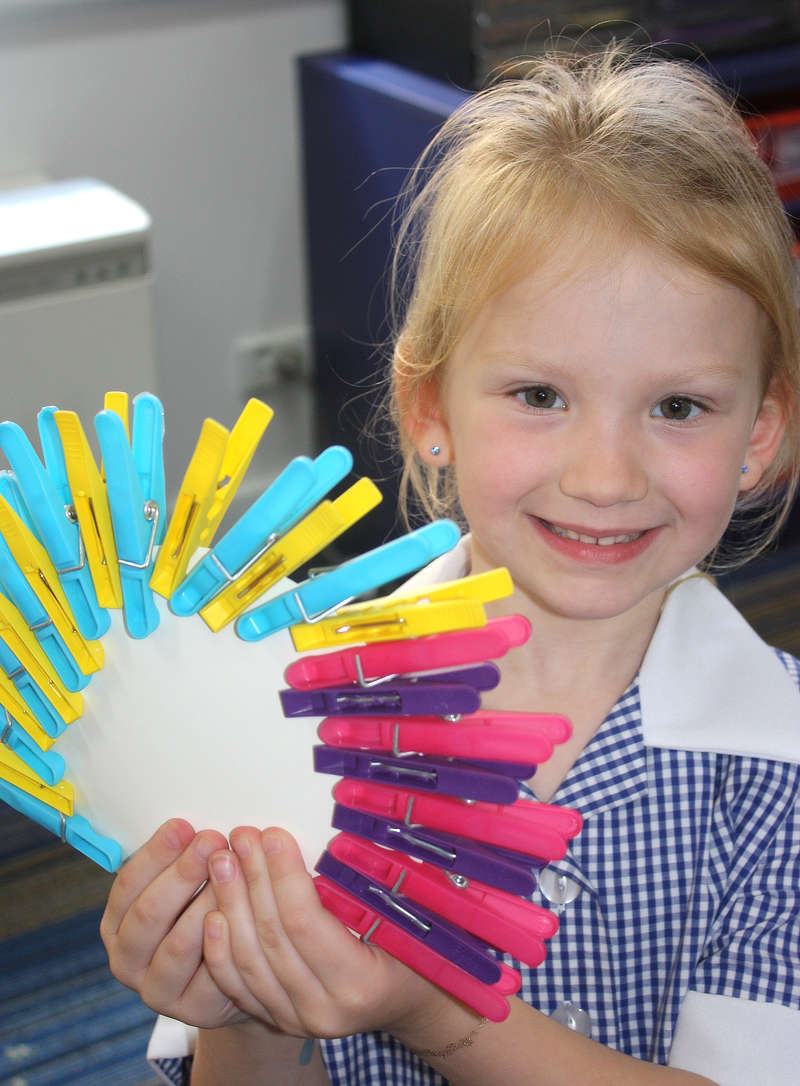
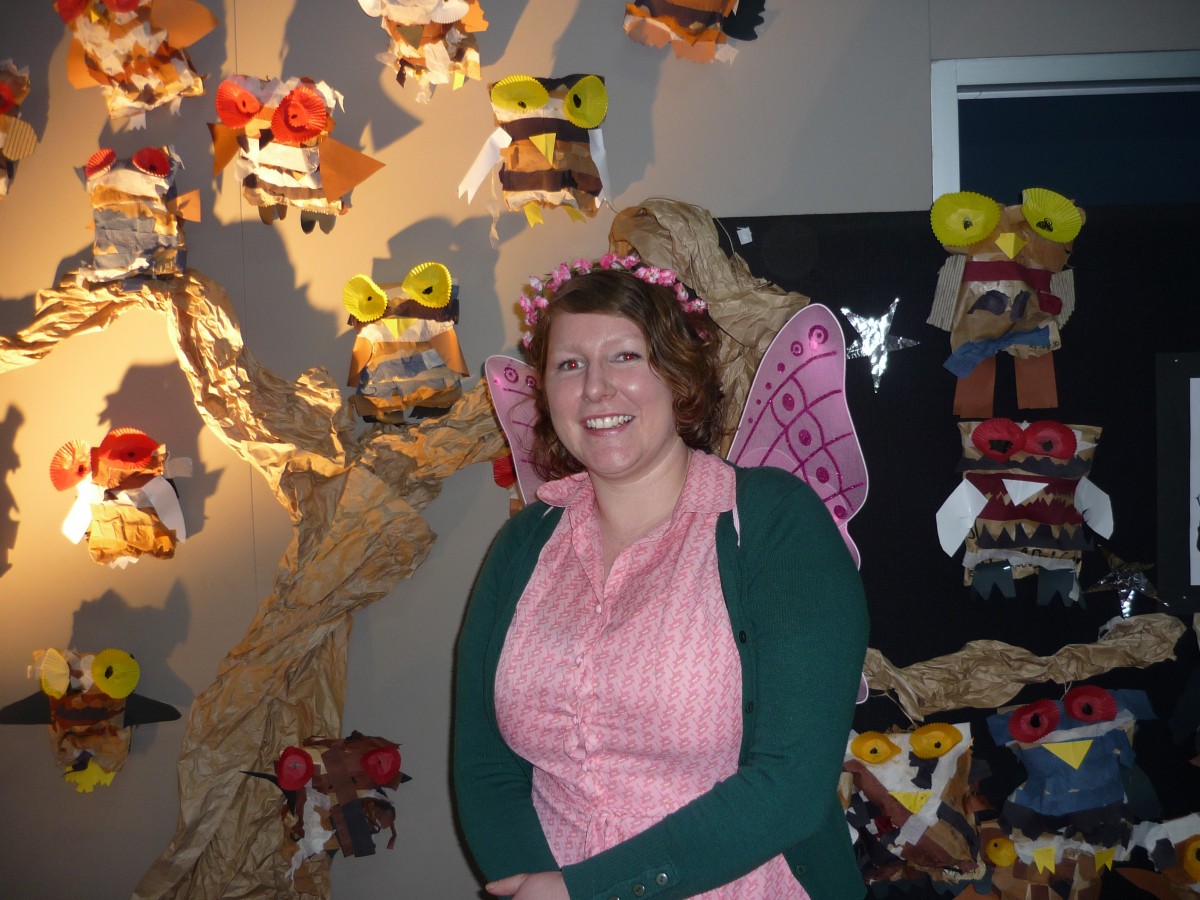
Health & PE
Bayswater North has a comprehensive Physical Education program that aims to develop the students’ skills, fitness and knowledge. Areas covered throughout the year include athletics, cross country, basketball, fundamental motor skills, ball handling, major and minor games, swimming and water safety, fitness, interschool sports and bike education. All students receive one hour PE session per week and students in grade 3 & 4 and 5 & 6 have an extra hour of sport. Lessons are predominantly game sense based and have an emphasis upon teaching the correct technique, rules and developing knowledge, teamwork and leadership progressively from Prep through to Grade Six.
Athletics
The athletics program for Grade 3, 4, 5 and 6 students culminates in the Ringwood District Athletics Carnival. The students have the opportunity to try out for a number of different events including triple jump, long jump, high jump, shot put, discus, hurdles and sprints during class time. A squad of students is selected for each track and field event from these trials. Training is also conducted during lunch times to compliment the work done in class. After the district carnival, students are given the opportunity to go on to Division, Regional and State level.
Prep to grade 2 students participate in modified athletic activities which focus on running technique and gross motor movements.
Fundamental Motor Skills
There are 11 Fundamental Motor Skills – catch, kick, run, vertical jump, overhand throw, bouncing, leap, dodge, punt kick, forehand strike and two hand strike. Fundamental Motor Skills (F.M.S) form the basis for the development of higher level sport specific skills- eg overarm throw -tennis serve or volleyball spike, baseball or cricket. Research has shown that it can take between 240 to 600 minutes of instruction to teach children to correctly perform a FMS.
Research has shown that students who do not develop the ability to perform FMS proficiently at a Primary level are less able or less willing to persist with the difficult task of learning more complex motor skills and will avoid activities which expose them to “public failure” Ultimately this can lead to students rejecting participation in sport and physical activity in secondary years and beyond. There is an emphasis upon the development of fitness and fundamental motor skills at Bayswater North, especially in the junior school, where students complete various units of work designed to specifically increase certain FMS.
Major Games
Students at Bayswater North Primary School have the opportunity to compete in a number of Major Game units during their class time throughout the year. Some of the more popular games that students have the opportunity to play are Indoor Soccer, Indoor Hockey, European Handball, Basketball and Bat Tennis.
These units are often taught using a format known as SEPEP, which stands for Sport Education in Physical Education Program. This format places the responsibility on learning and organisation on the students. Through teacher facilitation, students are taught how to organise, manage, referee and score their own sporting tournament, conducted in a round robin format.
We place a strong emphasis on leadership at Bayswater North and this is just one of the ways that the PE program helps to foster a culture of leadership at our school.
Interschool Sport
Students in grade 5 and 6 at Bayswater North have the special privilege of participating in the Summer and Winter Interschool Sports. The interschool sports format operates whereby we play a different school from our district each week, with some sports being played at home (at our grounds) and some played away (at the opposing school’s grounds).
Summer sports are played every Friday morning in term 1 with cricket, tee ball, basketball, bat tennis, rounders, volleystars and a specialist karate program being offered.
Winter sports take place every Friday afternoon of term 2 with football, netball, softball, hockey, volleyball, soccer and bat tennis being offered.
Division, Regional and State finals are then played during terms 3 and 4.
Cross-Country
Cross country takes place in term 2 at Bayswater North and is integrated with a ‘Fun and Fitness’ unit that students complete during their PE lessons during this time. The culmination of this unit is the Ringwood District Cross Country day held at Domeney Reserve.
To prepare for this day and to compliment the work done in class there is also the Bayswater North Running Club, which meets every Monday, Wednesday and Friday.
On top of this, we also have our Bayswater North Fun Run which helps to raise money for the school and also lets the kids display their fantastic running skills.
Swimming and Water Safety
At Bayswater North we believe that all student s have the right not only to learn to swim but also to feel safe and confident around the water. It is for this reason that we offer an extensive 1 week swimming program for all of our students.
Our junior program runs in term 4 at the Vicki Field Swim School and our senior program runs at the start of term 1 at the Kilsyth Aquatic Centre.
Our senior students also have the opportunity to try out for the Bayswater North Swimming Team.
This team competes annually at the Ringwood District Swimming Carnival held at Tintern GG in term 1 each year.
Basketball
There is a strong Basketball culture at Bayswater North Primary which has been further enhanced by our recently opened full size hall and basketball arena. We have had many of our teams reach state level competition in recent years and are very proud of our students’ achievements.
Term 3 is our main focus on Basketball with an extensive unit being held in PE classes.
For our juniors we have Knox Raiders clinics provided for all students in grade prep-2 while for our senior students in grades 3-6, we have the annual Hooptime Tournaments. These tournaments and clinics are again all complimented with lunch time trainings and round robin tournaments.
Music & Performing Arts
The Music & Performing Arts program provides an engaging, creative and encouraging environment for all students to learn, perform and love the Performing Arts. There is a strong focus on singing, with each lesson beginning with a variety of songs, using Sol Fa to learn and develop pitch recognition and Orff and Kodai pedagogy to learn music theory.
Their musical journey begins early with weekly music lessons in Prep and Year 2, where they discover the fundamentals of music in melody and rhythm through singing, movement and percussion playing. Dance and Drama are also included during lessons, allowing students to share and explore creative ideas.
In Grade 3 & 4, students continue to consolidate their notes and rhythmic understanding, and are introduced to basic chord structures and progressions through learning and performing on the Ukulele.
Students in Grade 5 & 6, continue to develop their musicianship skills by developing their note and rhythmic reading, composing short melodies on a variety of instruments, exploring voice and movement through role play, story-telling, and learning about meaning and interpretation, forms and elements including voice, movement, situation, time and place, and improvisation.
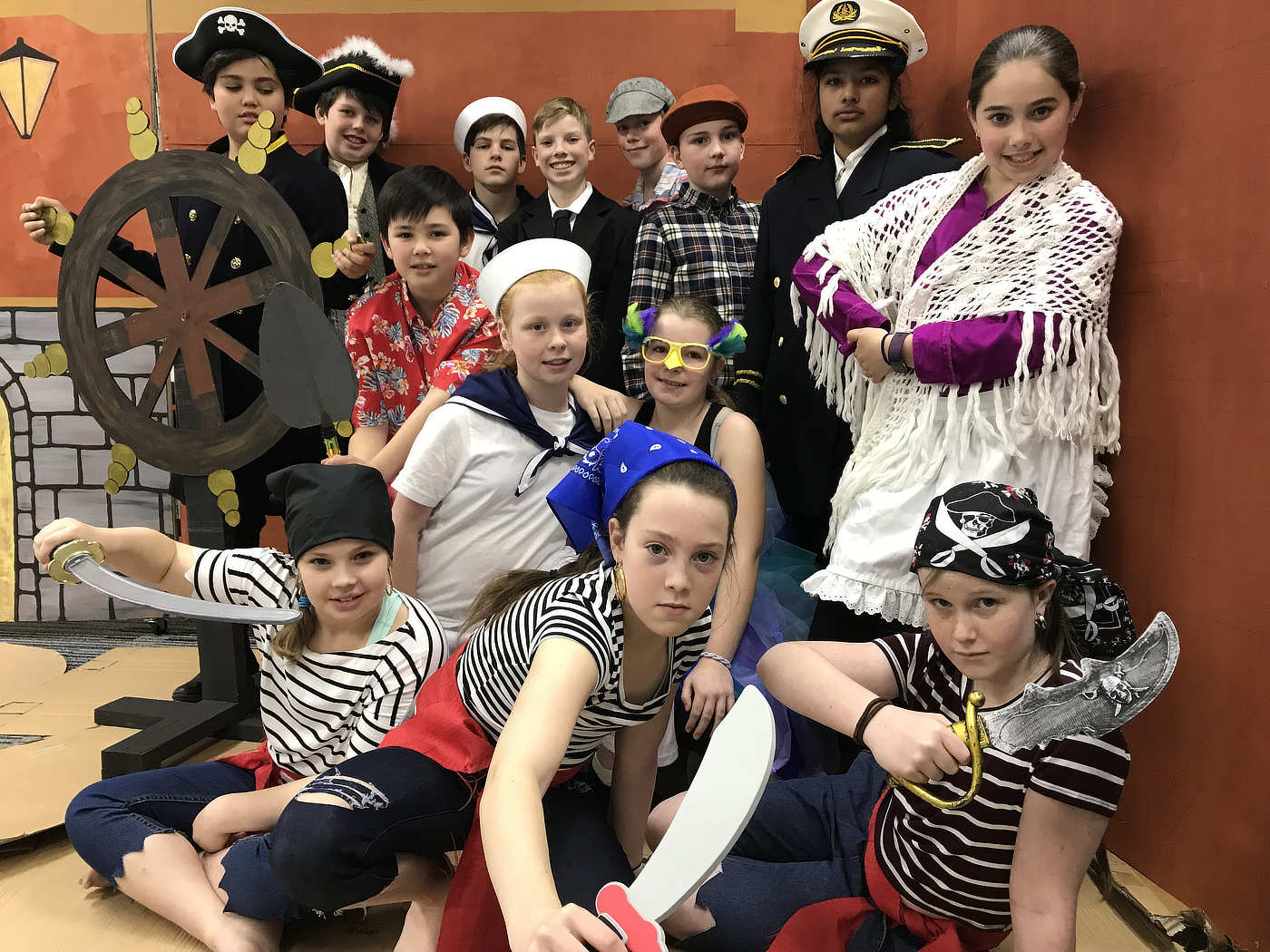
Biennial Whole School Musical
Every second year every student have the amazing opportunity to participate in the Whole School Musical Production. Students in Grades 5 & 6 get to audition for lead roles, and each class prepares items to present. Our school Gym is turned into a theatre like atmosphere, with professional lights and audio systems being set up to create a magical night of entertainment from our students and staff.
Kids On Parade Concert
Alternating with our Whole School Musical Production, students in Prep – Grade 2 present our ‘Kids on Parade’ Concert. Each class prepares a few items to present to the school community in an afternoon of high quality entertainment that also highlights individual students who take part in instrumental lessons.
Grades 3 and 4 Music Festival
Students in Grade 3/4 also present their talents in the Grade 3/4 Music Festival working together in their music lessons to present a whole class performance using xylophones, percussion instruments, Ukuleles and Dance.
Grade 5 and 6 Shindig
In Grade 5 and 6, students prepare a variety of acts to present for their Grade 5/6 Shindig Concert. From musical items, band pieces, drama sketches and improvisation, the Grade 5/6 students explore a variety of ways to express creative ideas by composing music, writing scripts and choreographing dance routines.
Junior & Senior Choirs
Here at Bayswater North PS, we have 2 choirs – The Junior Choir, for students in Grades 1 & 2 and the Senior Choir for students in Grades 3 – 6. Each choir rehearse weekly learning a variety of repertoire, and singing techniques that prepare them for the various opportunities to perform at school and also for the community. The Senior Choir have previously performed for local nursing homes, hospitals, Box Hill OXFAM Music Concert, Bunnings Family Day etc.
Band Program
The band program involves weekly rehearsals, learning about ensemble playing, intonation, listening and working as a team. The band is made up from students who learn a musical instrument either privately or as part of the Brass and Woodwind program. The students learn a variety of styles of and repertoire, and work and encourage each other as they develop their musicianship and ensemble playing skills.
Amazing Baysy Performing Corner
Our ‘Amazing Baysy Performing Corner’ also provides regular opportunity for students to perform. Led by our students, in front of their peers during recess and lunchtimes, students are given the opportunity to showcase their various talents including singing, dancing, instrumental performance or even a flashmob.
Friends of Music
Friends of Music nights encourage the wider school community to come along for an evening of entertainment presented by our students, parents and staff. This is held annually towards the end of the year, and is one of the many highlights for our instrumental students.
The Brass & Woodwind program
The Brass & Woodwind program offer students an opportunity to learn either the trumpet or clarinet. Students can ‘opt in’ and choose their preferred instrument. During their weekly lessons, students learn about note reading, technique in how to produce good quality tones, rhythmic values, sight reading, and breathing techniques.
We also offer instrumental lessons in Keyboard and Guitar.
ICT
Information and communications technology (ICT) is the hardware and software that enables data to be digitally processed, stored and communicated. ICT can be used to access, process, manage and present information; model and control events; construct new understanding; and communicate with others.
ICT, an interdisciplinary domain, focuses on providing students with the tools to transform their learning and to enrich their learning environment. The knowledge, skills and behaviours identified for this domain enable students to:
- develop new thinking and learning skills that produce creative and innovative insights
- develop more productive ways of working and solving problems individually and collaboratively
- create information products that demonstrate their understanding of concepts, issues, relationships and processes
- express themselves in contemporary and socially relevant ways
- communicate locally and globally to solve problems and to share knowledge
- understand the implications of the use of ICT and their social and ethical responsibilities as users of ICT.
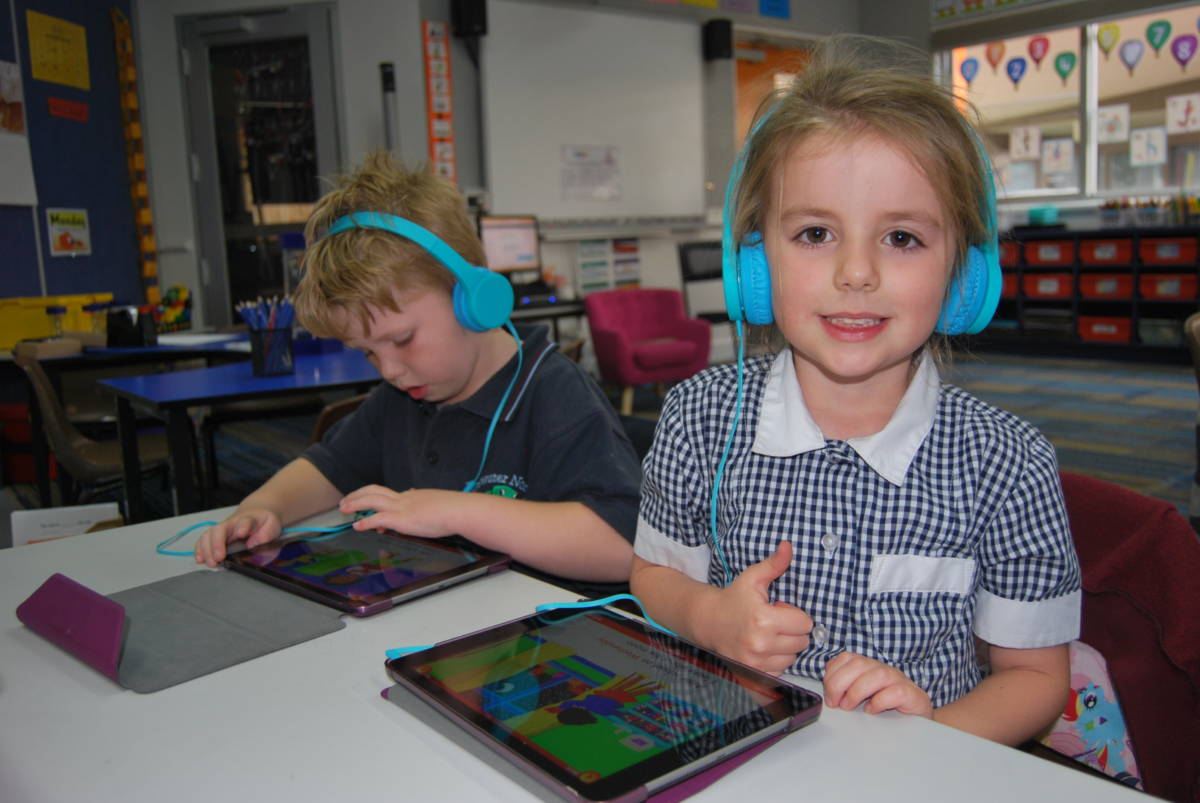
Learning in this domain enables students to focus on the task to be accomplished rather than on the technology they are using to do the work. Through the selection and application of appropriate equipment, techniques and procedures, they process data and information skilfully to create information products in forms that are meaningful for themselves and their audience. These products effectively demonstrate their knowledge and understanding of the concepts, issues, relationships and processes that are the subject of the task.
Students are provided with tools and strategies to monitor learning patterns and problem solving strategies. This provides a sound foundation for transforming personal learning. They gain an understanding of Internet protocols and strategies for exchanging information, which enables them to share and challenge their own and other people’s ideas and solutions with a global audience.
At BNPS we utilize Digital Technologies to support the curriculum. Our computer facilities are constantly being upgraded and are maintained and supported by two part time computer technicians. We have a computer lab containing 30 computers, class sets of notebook computers for year 3 to 6 and class sets of IPads for Foundation to grade 2 students. Every classroom also has access to Interactive whiteboards and data projectors.
At Bayswater North Primary we focus on
- keyboarding skills
- file management
- Internet use
- using Microsoft Office applications (Word, Publisher, PowerPoint, Excel)
- using Multimedia programs to support Early Years Literacy and Numeracy Learning Centres
Typical computer tasks involve the use of digital photos to enhance a report about a recent school excursion or event, designing posters or brochures about a campsite or country being studied, and using the internet to research information for a project.
Students at all levels are encouraged to improve their keyboarding skills with the regular use of a Typing Tutor program. Whilst touch typing is not expected, students should be using two hands to type, and quickly locate the position of each key on the keyboard with more than one finger.
Extra Curricular Activities & Excursions
At Bayswater North PS we offer a large range of extra curricular activities, incursions and excursions that are designed to complement the regular classroom or school program, and provide rich learning opportunities for students.
Activities that complement the curriculum program each term are chosen to provide students with engaging and fun ways of adding to regular curriculum delivery.
Extra curricular activities that fall outside the scope of the regular learning program that government schools provide may incur a cost, depending on the nature and type of the activity.
Some examples of the types of activities that are currently offered include:
- Excursions to places/programs outside the school – for example Knox Community Gardens Visit, Scienceworks.
- Incursions – organisations that visit the school to provide additional experiences. Such as – Super Buddies, Indigenous Storytelling.
- Grade 3-6 Camps Program
- Grade 5 and 6 Inter-school sports program
- Grades 3-6 Athletics Carnival
- Grades 3-6 Swimming Carnival
- Whole school cross country
- Choir
- Ukulele Group
- Junior and Senior Art Clubs
- Lunch time games clubs – run in the library by our Chaplain (Alan Silverwood)
- Instrumental Music Lessons
- Chess Club
- Buddies program (Prep/Grade 6 students)
- Friendship Ninjas program. Trained peer mediators from Grade 6 are visible in the grounds during recess and lunch times where they assist younger children with play.
- Whole School Colour Ru
- Special Day Celebrations, such as Harmony Day and Footy Colours Day.
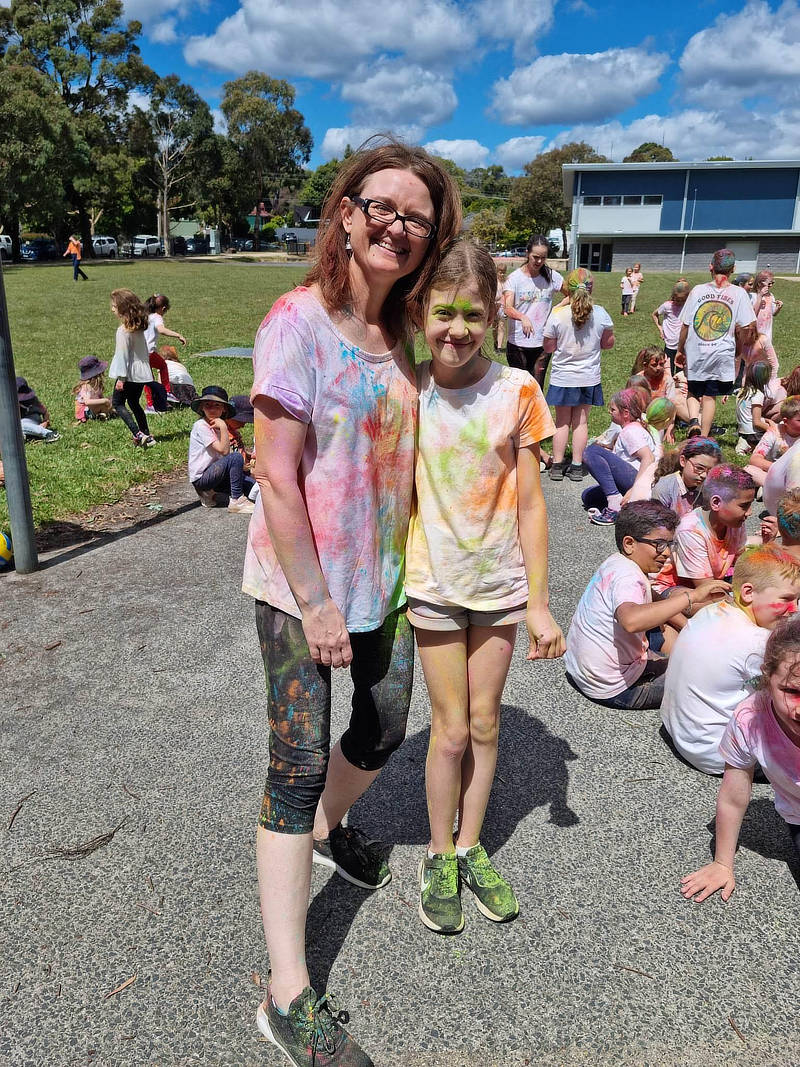
Library
Bayswater North has a large, well-resourced library encompassing a picture book corner, non-fiction section, fiction area as well as a teacher reference section and resource room.
Teachers in Foundation Year through to Grade 6 are responsible for their own library sessions. All students visit the library for one 50 minute session a week, during which they are given time to borrow books as well as learning relevant library and referencing skills.
